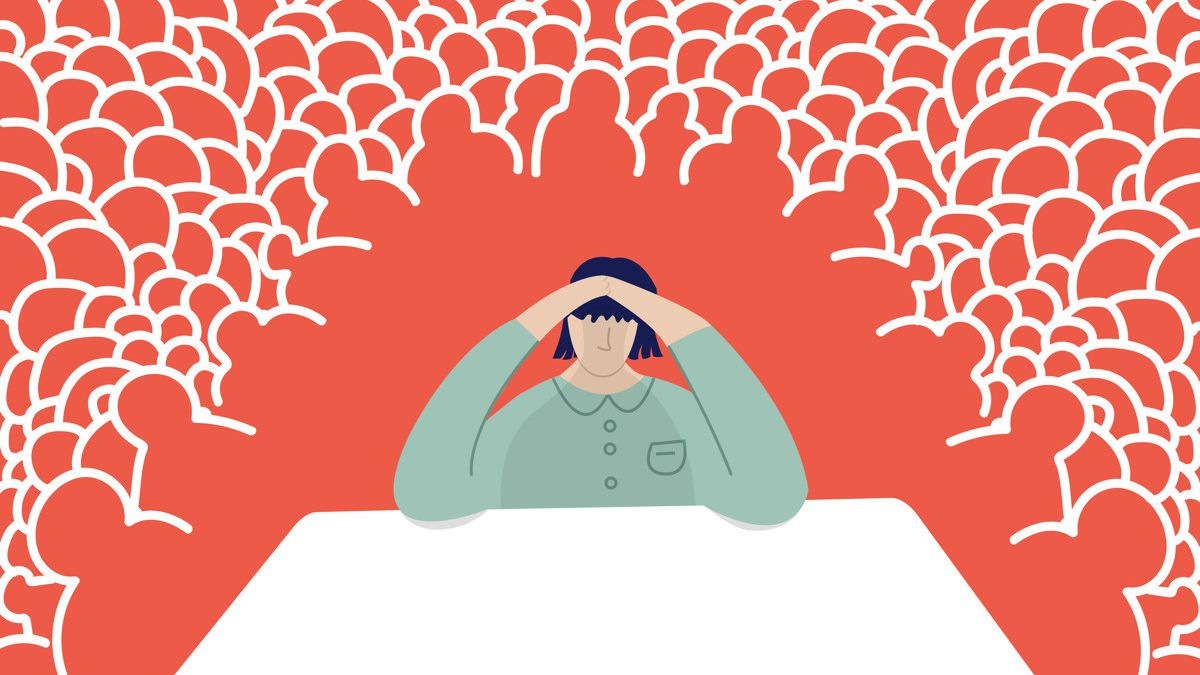
Late teens- considered as the bridge between childhood and adulthood. It is also said to be the stage in life when one learns the harsh realities, expectations, and standards the society has set for them. Thus, it is natural to feel overwhelmed. During this time, anxiety is a very common response to unfamiliar situations or settings and ignoring mental wellbeing for a long time can result into further significant mental health disorders.
Anxiety can immerge from various situations, regardless of the how serious the issue is. Even a person with the most robust personality may feel anxious. It can often be quite hard to interpret this whirlwind of emotions so it is okay to ask for help. However, according to researches, more than 68.4% of people show ignorance towards mental health issues precisely due to numerous stigmas regarding this issue.
Teenagers spend most of their time in school, around teachers and other students- including seniors, juniors and their classmates. In a space where hundreds of teenagers, who have their distinct individual personalities meet- one is bound to feel self-conscious or insecure about themselves, sometimes in an intensified level.
They say that words cut deeper than swords. School gossips- a very common and normalized activity among students, even though it may mentally effect the subject/(s) of these conversation to a great extent.
After long, exhausting hours of school, these adolescents return home to their parents or guardians, yet there are these lingering thoughts and unresolved, bottled feelings hovering in the minds, tormenting them. Lack of trust and conversation between parents and their children prevents these unfamiliar emotions to find light. Moreover, some parents tend to persuade or even inflict numerous expectations upon their children, and the thought of failing to fulfil their parents’ desires give them a sense of incompetency, resulting in stress and hopelessness.
Besides, they also tend to spend a significant amount of time scrolling through social media- platforms where millions of users share their accomplishments, photographs, or bits of their everyday lives. Specifically viewing the positive events of others’ lives generally causes the viewer’s mind to involuntarily compare these user’s lives to their own, which might impact their mental state negatively.
Generally, at the age of 16, thousands of students prepare for their first board examination. They can’t concentrate, have no motivation, as they feel the pressure of the upcoming assessment that will heavily affect their future. Pupils tend to lose their appetite, and the continuous stress often causes severe headaches. Ultimately, many examinees often fall ill right before or even during their exam season. Soon after the exams end, the panic for result day begins as well.
Majority of schools continue to focus mainly on their students’ academics- endlessly taking tests and assessments; assigning piles of homework to be submitted by the end of the week. The time for exploring one’s own personality or self-care is nowhere to be found.
Later at 18, when it’s almost time for graduation, and students are expected to start working on their college applications, even while many remain confused about which career field fits them best. Stressed, unable to decide, and terrified just like the rest of their classmates because they feel the pressure to have their goals and ambitions set.
Some people gather the courage to speak about it and ask for help, while others remain silent. Unfortunately, shaming related to mental health remains a cultural norm in most Asian communities to date. People usually tend to view “seeking help” as a weakness and sometimes even bluntly label them as “insane”. In other instances, some adults tend to think their child is pretending to have an anxiety disorder. Consequently, most teens suffering from this mental turmoil choose to remain silent and continue battling with their anxiety on their own.
Editor: Anusha Mourshed
Writer: Sameha Islam
